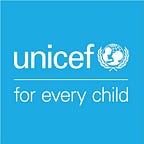Fight against malnutrition: Hope for a future for refugee children
Habiba, a 23-year-old Central African refugee living in the Gado camp, has just had a traumatic experience. Two days ago, there was panic in the camp. Her over 3-year-old son was convulsing and showing signs of weakness. Alerted by Hawa, from the nutrition support group formed by UNICEF to identify such cases, a team arrived and transported the little boy on a motorbike to the health center outside the camp. Given the condition of the child, they were immediately taken to the Garoua Boulai district hospital for treatment. Amadou suffered from severe acute malnutrition with medical complications. The nurse noted pallor and acute fever in the child, with some dermatological lesions and edema in addition to gastroenteritis shown by the first examinations. She then immediately initiated the treatment according to the childcare protocol under the frightened gaze of her mother. “When we arrived, we gave him milk and he refused to drink. The nurse tried to force, and he rejected it, and then she placed a probe in his nostrils. I thought it was the end for my child and I started crying,” she tells us with shivers.
Three days later, Amadou is still in hospital, but his condition is stabilizing more and more, and he has timidly started to eat again. He must continue to undergo medical treatment with antibiotics and then receive micronutrient powder to add to his diet to improve the intake of dietary diversity which will help him regain weight quickly. Habiba is less and less worried and gradually regains her smile while thanking the caregiver who received them. “In our health area, like Amadou, many children suffer from severe malnutrition, but for the mothers who come regularly for treatment, their prognosis is good because they are treated free of charge. So, they will be out of danger”, we entrust the nurse while reassuring the mother.
Habiba is one of more than 29,000 Central African refugees registered in the Gado camp in 2021. She found herself in Cameroon fleeing the gunfire of the Central African crisis. Today, she is forced to go to the bush every day to look for wood which she sells for 100f or 200f to buy rice to feed herself and her son. She is relieved that he is off the hook and wants the best for him.
In the East region where the camp is located, there is an increasing increase in refugees. This influx increases the needs because of the precariousness of the living conditions of these populations. This situation leads to a high prevalence of acute malnutrition, stunting and micronutrient deficiencies among children, which in turn leads to an increased risk of death among these vulnerable groups. In addition to this, the management of the COVID-19 crisis has created additional difficulties for access to health care services and making community outreach even more difficult.
To meet these humanitarian needs and despite the funding shortfall, UNICEF and its partners are trying to maintain the continuity of treatment for children suffering from severe acute malnutrition through the distribution of therapeutic foods, in particular therapeutic milks, plumpynuts, medicines for the treatment of medical complications and anthropometric equipment.
In addition to this support, a community approach to the prevention of malnutrition is supported through a group of women whose role is to carry out activities ranging from awareness-raising to cooking demonstrations for home food fortification, through advice on breastfeeding and prenatal consultations.
Thanks to its interventions in 2021 in emergency humanitarian areas, UNICEF enabled 66,363 children aged 6 to 59 months (50% girls), including 18,347 refugee children, to receive free treatment for acute malnutrition. UNICEF also provided micronutrient powders to 169,257 children aged 6–59 months and organized counseling sessions on young child and infant feeding for caregivers. However, with the persistence of political social problems and the increasing number of births of refugee children, there is an urgent need for funding to reach all children in need of nutritional assistance in humanitarian emergency areas.
